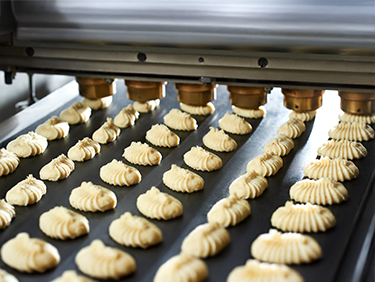-
We see Edita benefiting in 2026e from improved consumer spending, pent-up demand, and its expansion in Iraq, given the market’s promising dynamics
-
We forecast EBITDA to grow at a CAGR of c23% and EBITDA margin to average c18% over our 2025–29e forecast period, driven by higher prices and volume recovery
In a recent report, HC Brokerage presented their evaluation of Edita Food Industries forecasting Iraq expansion to add value to the company.
Pakinam El-Etriby, Consumers Analyst at HC commented that: “ Revenue growth and margin resilience amid significant challenges: Despite notable commodity price increases due to the disruptions in global supply chains since the start of the Russian-Ukraine war in February 2022 and significant EGP devaluations over the past three years, Edita Food Industries (EFID) was able to preserve its margins relatively. In 2022, it improved its GPM by c2 pp y-o-y to c34% (a c22% y-o-y increase in volume and a c20% y-o-y increase in prices), yet recorded c2 pp y-o-y drop in GPM to c32% in 2023 (a c13% y-o-y increase in volume and a c40% y-o-y increase in prices); however, in 9M24, its GPM further dropped c2 pp y-o-y to c30%, as its volume was almost flat y-o-y (a drop of 0.14% y-o-y) after it increased prices by c36% y-o-y considering the c40% y-o-y rise in cost/pack, due to significant commodity price increases, such as a threefold rise in cocoa powder price to USD24,149/ton. During 3Q24, EFID increased selling prices by c50% y-o-y while its volume dropped c16% y-o-y, and its GPM dropped c2 pp y-o-y to c31%, indicating stretched consumer demand given the inflationary pressures. In 2025, according to data from Bloomberg, cocoa prices are expected to increase by c11% y-o-y to USD9,085/ton. We also expect inflation to remain in double-digits and the EGP to devalue by an average of c14% in 2025e, leading us to expect only a 2.0% y-o-y increase in private consumption in FY24/25e, down from 5.3% y-o-y in FY23/24. Accordingly, we estimate EFID’s volumes to drop by c4% y-o-y in 2025e (similar to an expected c4% y-o-y volume drop in 2024e), price increases to be less aggressive but still remain high at c30% y-o-y (versus an expected c39% y-o-y increase in prices in 2024e), and GPM to expand by c1 pp y-o-y to c31% for 2025e. We believe the company’s volume is supported by trade-down trends of Egyptian consumers, increasing their consumption of local snacks at the expense of imported ones due to inflationary pressures and the EGP devaluation.”
“We upward revise our 2024–28e revenue forecast by c10% and gross profit by c2%, on higher average prices despite higher costs: Over our 2026–29e forecast period, we expect revenue to grow at a CAGR of c18%, driven by higher volumes and prices, growing at a CAGR of c7% and c10%, respectively. For 2024e, we have downward revised our gross profit estimate by c13% to EGP4.92bn (up c25% y-o-y), implying a GPM of c30% (down c2 pp y-o-y), versus our prior estimate of c33%, mainly on higher production costs, especially cocoa which hiked c2x y-o-y in 2024. For 2025e, we expect gross profit to increase c28% y-o-y to EGP6.30bn, still below our previous estimate of EGP7.05bn, with GPM slightly improving by c1 pp y-o-y to c31%, versus our prior estimate of c34%, as we expect average selling prices to increase by c30% y-o-y (offsetting the c28% y-o-y increase in average cost/pack), with a 3.71% y-o-y slight decrease in volumes. In 2026e, we forecast a c11% y-o-y increase in volumes, driven by pent-up demand, easing inflation, and interest rate cuts, then gradually normalizing at a c4% y-o-y growth by the end of our forecast period. Over our 2026–29e forecast period, we foresee gross profit to grow at a CAGR of c19%, with average price per pack growing at a CAGR of c10%, offsetting the rise in cost per pack of c9%, as we expect EFID to pass cost increases onto consumers to preserve its margins. We forecast EBITDA to grow at a 2026–29e CAGR of c20% and net income at c25%. We expect EFID to report a net debt balance of EGP1.33bn in 2024e, EGP1.34bn in 2025e, then decrease to EGP728m in 2026e and turn into a net cash balance starting 2027e, assuming improved operations from its Iraqi subsidiary (valued in USD terms), and a reduction in its cash conversion cycle to 24 days by the end of our forecast period from an average of 45 days in 9M24.” El-Etriby added.
“Iraq expansion to add value to the company, in our view: In January 2025, EFID signed a partnership agreement with Baghdad-based Tuama Jebur Abbas (TJA) to acquire 49% of it for USD8m, through a capital increase. The acquisition includes a factory equipped with three production lines, two for cakes and one for biscuits. Edita Iraq plans to invest more than USD27m over three years, including relocating one bakery line from Egypt to Iraq by the end of 2025, adding a new cake line by early 2026, and carrying out renovations and expansions at the Iraqi factory. The partnership will implement a technical know-how and manufacturing assistance agreement, focusing on maximizing production capacity, efficiency, and control to ensure the transfer of EFID’s expertise and industrial capabilities. Additionally, a trademark agreement will secure the rights to launch EFID’s brand portfolio in Iraq, broadening its product range and market presence. EFID aims to leverage its brand equity through exports, including the Molto and Tiger Tail brands, which generated around USD10.2m in 2023. In our view, the Iraqi market is attractive with a population of around 44m, GPD per capita of USD5,745 in 2024 (higher than Egypt’s USD3,574), and a low-single-digit inflation and stable currency. We expect Edita Iraq to begin contributing to EFID’s total sales in 2025e, assuming around EGP588m in revenue, rising to EGP1.28bn in 2026e, and growing at a CAGR of c34% over our 2027–29e forecast period. We forecast Edita Iraq to record a GPM of c30% in 2025e, increasing to c32.0% in 2026e, and averaging c34% over 2027–29e.” Pakinam El-Etriby concluded.
About HC Brokerage
HC Brokerage is an affiliate of HC Securities & Investment– a full-fledged investment bank providing investment banking, asset management, securities brokerage, research, and custody services. HC Brokerage is an Egyptian registered company and member of Egypt’s Financial Regulatory Authority (FRA), and its registered address is 34 Gezirat Al-Arab St., Mohandessin, Giza, Egypt, Dokki 12311
For further information, please contact:






